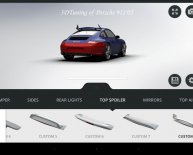
List of imported cars
In the past two posts, we covered vehicle duty rate exemptions and importing regulations. In this article, you will learn what paperwork is needed and what steps you should take to get a better grasp on what is required prior to importing a car into the U.S.
First things first: duty rates.
Duties vary based on the type of vehicle; percentages are based on what you paid for the vehicle itself:
What Paperwork Will I Need?
Customs requires several documents before a car can be shipped into the US.
Is your vehicle older than 25 years old?
If so, you’re in luck. It’s considered an “antique” and is therefore subject to fewer requirements. Antiques are more likely to get into the country with relative ease. In general, if it has been 25 years or more since the original production date and the the car is in unmodified condition, the importation process will be straightforward, because:
However, there are a few exceptions to be aware of.
Is your vehicle younger than 25 years old?
The process of importing a newer car can be a challenge to navigate. It’s here where costs start adding up. Before you proceed to plunk down your hard earned cash on a vehicle overseas, we highly recommend following these steps and doing them before you think of shipping your car to the U.S.:
1) Check to see if your vehicle is included on this list:
If it is, then you will just need to ensure that it meets all the requirements necessary and file all the paperwork needed.
If it isn’t, a Registered Importer (RI) licensed by the National Highway Traffic Safety Administration (NHTSA) can help you adjust your vehicle to comply with U.S. standards and file a petition to the NHTSA to allow you to import the car into the U.S. Only RIs can petition the NHTSA for eligibility, and this petition can take up to seven months to be processed. We highly recommend that you don’t arrange shipping until you get explicit approval from the DOT! The storage charges in a bonded warehouse can cost a bundle!
2) Look up an Independent Commercial Importer (ICI) on this list:
ICIs are importers who hold Certificate of Conformities from the EPA and are therefore allowed to help maintain and import vehicles into the U.S., but they are independent and not associated to or explicitly endorsed by the EPA itself. An ICI can give you an estimate of the expenses required to get your vehicle compliant and moved into the U.S. Be sure to check with various ICIs if they work with your make and model of vehicle and shop around costs to get a good feel of what you might have to expect from the car importation process.
Understanding the process involved will help you wrap your head around the costs of importing your vehicle. Then you can get started on fixing it up to conform to U.S. standards.

















